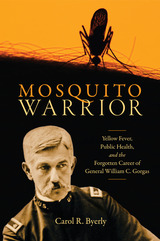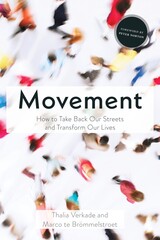
Presenting case studies from sixteen countries on five continents, The Catholic Church and the Nation-State paints a rich portrait of a complex and paradoxical institution whose political role has varied historically and geographically. In this integrated and synthetic collection of essays, outstanding scholars from the United States and abroad examine religious, diplomatic, and political actions—both admirable and regrettable—that shape our world. Kenneth R. Himes sets the context of the book by brilliantly describing the political influence of the church in the post-Vatican II era. There are many recent instances, the contributors assert, where the Church has acted as both a moral authority and a self-interested institution: in the United States it maintained unpopular moral positions on issues such as contraception and sexuality, yet at the same time it sought to cover up its own abuses; it was complicit in genocide in Rwanda but played an important role in ending the horrific civil war in Angola; and it has alternately embraced and suppressed nationalism by acting as the voice of resistance against communism in Poland, whereas in Chile it once supported opposition to Pinochet but now aligns with rightist parties.
With an in-depth exploration of the five primary challenges facing the Church—theology and politics, secularization, the transition from serving as a nationalist voice of opposition, questions of justice, and accommodation to sometimes hostile civil authorities—this book will be of interest to scholars and students in religion and politics as well as Catholic Church clergy and laity. By demonstrating how national churches vary considerably in the emphasis of their teachings and in the scope and nature of their political involvement, the analyses presented in this volume engender a deeper understanding of the role of the Roman Catholic Church in the world.

The Welfare Reform Act of 1996 drastically changed the delivery of social services in the United States for the first time in sixty years. More than a decade later, according to Catholic social ethicist Thomas Massaro, a disturbing gap exists between the laws we have enacted as a nation and the moral concerns we profess as a people.
Massaro contends that ethicists too often focus on strictly theoretical concerns rather than engaging concrete social and political issues, while public policy experts are uncomfortable drawing ethical judgments about legislation. United States Welfare Policy takes a fresh approach to the topic by using Catholic social teaching as a lens through which to view contemporary American welfare policies, citing the tradition's emphasis on serving the needy—including a preferential option for the poor—and the common good.
Massaro maintains that the most important outcome of welfare policy is not the cost-effectiveness of programs, but the well-being of individual families. The concluding analysis of this thoughtful study applies Catholic ethical concerns to specific aspects of welfare reform, including the funding mechanisms for the Temporary Assistance to Needy Families (TANF) program, work participation requirements affecting the bond between mothers and children, eligibility rules, the intrusion of family caps into reproductive decisions, and the imposition of disproportionate burdens upon particular demographic groups.
Massaro offers possible alternatives in each case and, as the fight over reauthorization of the welfare act continues, he calls on Catholic churches and clergy and laity to take action and advocate publicly for a more ethical approach to welfare reform.
READERS
Browse our collection.
PUBLISHERS
See BiblioVault's publisher services.
STUDENT SERVICES
Files for college accessibility offices.
UChicago Accessibility Resources
home | accessibility | search | about | contact us
BiblioVault ® 2001 - 2024
The University of Chicago Press









